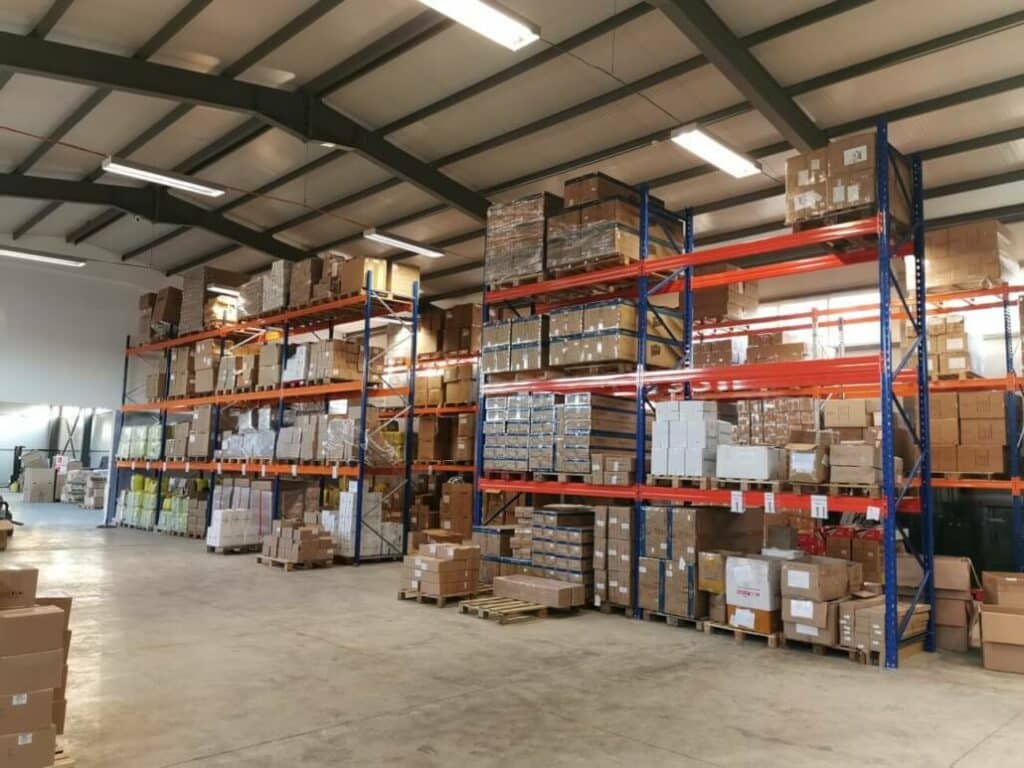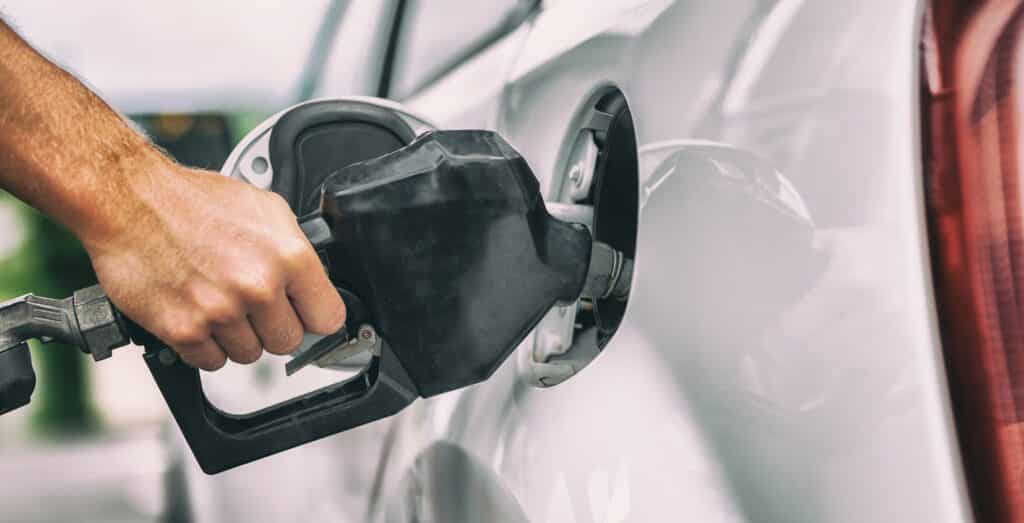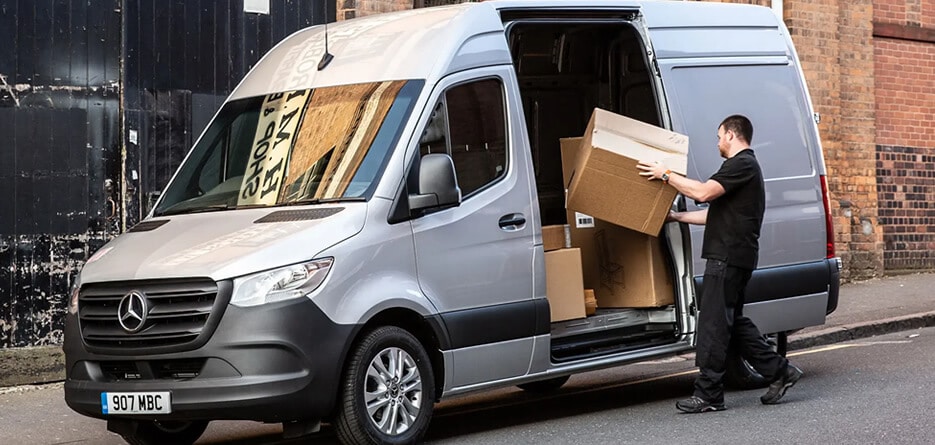Starting a Courier Business Costs $33,000 to $52,250

Are you looking to start your own courier & delivery business? As part of your business plan, make sure to consider all the startup and operating costs to start and run a courier business.
How much does it cost to start a courier business? And how much does it cost to run a courier business on average? Is this profitable?
We’ve identified that it costs anywhere from $33,000 – $52,250 to start a small courier company with 5 vans, plus $40,500 – $42,500 in operating costs per month to run the business the first few months.
Want to know more? In this article we’ll go through all the different costs you will need to budget for before you can open your own courier business. Read on!
For more information on Courier businesses, make sure to check our guides below: How To Start a Courier Business in 11 Steps How To Build a Financial Model For a Courier Business How to Write a Business Plan for a Courier Company
Courier Business Startup Costs
Courier businesses are capital heavy, meaning they require a significant investment upfront to acquire the fleet (vehicles) before you can start to do business.
There are 2 types of costs: startup costs and operating costs. First, let’s have a look at the startup costs: the expenses you must pay for before you open your business. Operating costs, instead, are the expenses you pay for each month to run the business later on.
The startup costs depend on a number of factors, for example the number of vans you plan to operate. Therefore, we have laid out below a clear overview of all the key costs you can expect to start a small courier business with 5 vans.
Note that these costs are for illustrative purposes and depend on several factors which might not fully apply to you.
| Startup cost | Amount |
|---|---|
| Fleet acquisition | $18,750 – $33,750 * |
| Office & warehouse lease deposit | $4,000 – $8,000 |
| Licenses | $250 – $500 |
| Insurance | $10,000 |
| Total | $33,000 – $52,250 |
Courier fleet acquisition costs
By far the largest expense for any courier business is the acquisition of the fleet itself.
Logically, a courier business using bikes would cost much less than a business using vans. So first, you should decide what type of vehicle(s) you will use for your courier services.
Assuming you decide to go for a courier business using vans, you should decide to buy or lease the vans:
- With leasing, you will effectively rent the vans to a company for a long period of time (a few years). Typically the lessee (you) will own the vans at the end of the rental agreement. Whilst you don’t need to pay for a large amount upfront, you will need to pay for the monthly lease payments, with interest.
- If you decide to buy instead, you will likely need a loan. Whilst the lending conditions vary by lender, you will still need to provide a significant loan downpayment upfront (usually 10% to 20%). As for leasing, you will need to pay back the loan, each month, with interest.
When it comes to the acquisition cost itself, the average cost of a new cargo van ranges from $25,000 to $45,000 depending on the type of vehicle.
So, assuming you purchase 5 new cargo vans at $35,000 each and you take on debt with a 15% downpayment, you’ll have to pay upfront $26,250 out of the total $175,000 acquisition cost.

Office & warehouse lease deposit
Although you might not need a separate office (especially if you operate a small fleet of 2-3 vans) as you could use your own residence for that, you must have a warehouse for your fleet operations.
Instead, if you operate a fleet of more than 5 trucks, the fleet operations and administrative functions like HR and finance may require you to get an office and a separate team for that.
The warehouse is crucial though: you will need a place to park the vans (or any other vehicle). Also, you will need a warehouse for the fulfilment operations: for example you might need to store the parcel boxes overnight before you can make the delivery to your customer the following day. Therefore you need a place to store the merchandise before you can ship it.
In any case, the upfront cost for the office & warehouse (the lease deposit) shouldn’t be significant for most small businesses. It’s simply a function of your office (and/or warehouse) space and the lease rate.
Let’s first assume you rent a 2,500 sq. ft. commercial space with a small office for 5 vans in an industrial area. Now, assuming you pay the $6.59 average rental price per sq. ft. for industrial space in the US, the 3 to 6 months refundable deposit would cost you $4,000 to $8,000 upfront.

Courier licenses costs
Another relatively small expenses yet very important is the cost to obtain licenses and permits necessary to start a courier business.
The cost vary greatly based on the state you operate in, as well as the type of products you deliver. For example, a courier service operating in the healthcare industry (e.g. medication, samples, etc.) would require a separate license as well as a licensed medical professional to drive the van.
Yet, if you operate a standard parcel courier business, licenses would cost anywhere from $250 to $500 maximum.
Courier insurance costs
There are a number of insurance policies you will need before you can start your courier business. Although your needs will vary according to your region and circumstance, the following are some typical policies for any courier business:
- Commercial Auto Insurance: covers physical damage and liability claims for drivers operating a vehicle on the job ($1,700 per year)
- General Liability: coverage that protects you from 3rd party claims that may arise during business operations (e.g. bodily injuries, property damage, personal injury) ($475 to $1,600)
So assuming you operate a fleet of 5 vans, you would pay around $10,000 upfront for these 2 policies.
In addition to these policies you pay upfront, you will need to pay for a separate insurance policy: the Cargo Insurance policy. The cargo insurance policy protects your business against risks of physical loss, damage, and theft of goods while in transit. This is a policy which cost varies based on the value of the goods you transport.
Courier Business Operating Costs
In addition to the startup costs discussed above, there are a number of important costs you should also budget for to run your courier & delivery business.
How much does it cost to run a courier business? What expenses should you budget for?
As you would expect, by far the biggest chunk of your costs are variable costs that are a function of the number of miles your vans drive each month. From fuel costs to drivers’ wages, let’s have a look at the key costs you should budget for in your business plan to run a courier business.
| Operating cost | Amount (per month) |
|---|---|
| Fuel | $6,500 – $8,000 |
| Repair & maintenance | $3,000 |
| Drivers’ wages | $26,000 |
| Leasing or debt repayment | $3,500 – $4,000 |
| Rent & utility bills | $1,500 |
| Total | $40,500 – $42,500 |
Courier fuel costs
One of the most important expense for courier delivery companies is fuel.
For example, a 4-wheel drive pick-up van use around 21 to 26 litres of diesel per 100 kms. So assuming that a van drives on average 150 miles per day, that’s a total of $50 to $60 per day for fuel costs alone.
This represents an average of $0.35 to $0.40 in fuel costs per mile for courier delivery vans.
Assuming you operate 5 vans 6 days a week, that’s a total of $6,500 – $8,000 per month.

Courier repair & maintenance costs
In addition to fuel, you should also budget for the regular checkup and maintenance cost for your vans. On average, it costs $0.14 per mile and varies based on the vehicle’s model and condition.
Using the same example above, assuming 5 vans driving 150 miles per day 6 days a week, that’s a total of $3,000 for repair and maintenance costs.
Drivers wages
The largest expense for courier businesses is the cost of drivers’ wages.
Courier delivery is an intense job as you constantly are on the go and must combine both driving with handling of the parcel boxes themselves.
That’s why courier delivery salaries typically are higher vs. other types of transport jobs salaries (e.g. taxis, truck drivers, etc.). As a reference point, the average gross salary for a delivery driver in the US is $44,000 per year.
As you need to hire full-time and part-time employees to cover 6 days a week with 5 vans, you would need about $26,000 for salaries (including 20% taxes and benefits).

Leasing or debt repayment costs
Whether you decided to purchase the vans with a bank loan or to lease them instead, you will need to pay back the loan or the lessor each month.
Now, let’s assume as explained earlier you purchased 5 vans worth $35,000 each with 85% of debt and a 5.50% SBA loan over 8 years, you would be paying back around $3,500 – $4,000 in debt repayment and interest each month.
Rent & utility bills
As explained above, you will need a warehouse for fulfilment and potentially a separate office for administrative and support functions (finance, HR, etc.).
Assuming you rent a 2,500 sq. ft. commercial space for a small office and a warehouse for 5 vans in an industrial area at $6.5 per sq. ft., rent should cost you around $1,500 per month (including utility bills).



